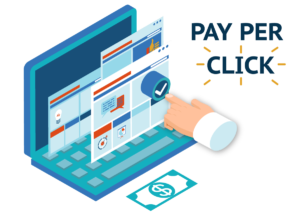Understanding PPC Advertising: A Comprehensive Guide

Paid advertising is a crucial aspect of modern digital marketing, and pay-per-click (PPC) is one of the most popular forms of paid advertising. This type of advertising allows businesses to target specific audiences and display their advertisements to users who are actively searching for their products or services. In this article, we will delve into the world of PPC advertising and explore what it is, how it works, and why it’s essential for businesses of all sizes.
What is PPC Advertising?
PPC advertising is an online advertising model in which advertisers pay each time a user clicks on one of their ads. This type of advertising is typically used by businesses looking to drive traffic to their websites, generate leads, or increase sales. With PPC advertising, you only pay when someone clicks on your ad, which makes it an efficient and cost-effective way to reach your target audience.
How Does PPC Advertising Work?
PPC advertising works by placing advertisements in front of users who are searching for keywords related to your business. For example, if you run a local bakery, you could place ads for your bakery in front of users who are searching for “bakery near me” or “fresh bread.” When a user clicks on your ad, they are taken to your website, where they can learn more about your business and make a purchase.
The process of PPC advertising starts with keyword research. You’ll need to identify keywords that are relevant to your business and that your target audience is searching for. You’ll then use these keywords to create your ad and bid on them in an auction-style process. The higher your bid, the more likely your ad is to be displayed in front of users.
The Benefits of PPC Advertising
PPC advertising offers many benefits to businesses of all sizes. Some of the most significant benefits include:
Targeted reach: With PPC advertising, you can target specific audiences based on factors such as age, location, and interests. This allows you to reach only those who are most likely to be interested in your products or services.
Immediate results: Unlike other forms of advertising, such as search engine optimization (SEO), PPC advertising delivers immediate results. You can start seeing traffic to your website and generating leads within hours of launching your campaign.
Cost-effective: PPC advertising is one of the most cost-effective forms of advertising. You only pay when someone clicks on your ad, which means you can control your advertising costs and avoid paying for advertising that doesn’t result in a return on investment.
Measurable results: PPC advertising provides measurable results, which allows you to track the success of your campaigns and make data-driven decisions. With detailed reporting and analytics, you can see exactly how many clicks your ads are receiving, where they’re coming from, and what keywords are driving the most traffic.
The Challenges of PPC Advertising
While PPC advertising offers many benefits, it also presents some challenges. Some of the most significant challenges include:
Competition: With PPC advertising, you’re bidding against other businesses for the same keywords. This means you’ll need to continuously monitor your campaigns and adjust your bids to stay competitive.
Managing costs: While PPC advertising is cost-effective, managing your advertising costs can be challenging. You’ll need to continuously monitor your campaigns to ensure you’re not overspending, and make adjustments as needed to stay within your budget.
Creating effective ads: Creating effective PPC ads requires a strong understanding of your target audience and the keywords they’re searching for. You’ll need to create compelling ad copy and design eye-catching ad visuals to grab the attention of users and drive clicks.
- Staying compliant with advertising guidelines: PPC advertising is subject to strict advertising guidelines, and it’s essential to stay compliant with these guidelines to avoid having your ads disapproved or banned.
Key Components of a Successful PPC Campaign
A successful PPC campaign requires several key components, including:
Keyword research: Identifying the right keywords to target is crucial for a successful PPC campaign. You’ll need to choose keywords that are relevant to your business, have a high search volume, and are within your budget.
Ad copy: Your ad copy needs to be compelling and grab the attention of users. It should clearly communicate the benefits of your products or services and encourage users to click on your ad.
Ad visuals: Ad visuals, such as images or videos, play a crucial role in the success of your PPC campaign. They should be eye-catching and relevant to your ad message.
Landing pages: Your landing pages should be optimized to convert visitors into leads or sales. They should be fast-loading, easy to navigate, and clearly communicate the benefits of your products or services.
Bid management: Bid management involves adjusting your bids to stay competitive and ensure your ads are being displayed in front of the right audience. You’ll need to continuously monitor your campaigns and make adjustments as needed.
Reporting and analysis: Reporting and analysis are crucial for tracking the success of your PPC campaigns and making data-driven decisions. You should regularly review your campaign performance and make adjustments as needed to improve results.
Conclusion
PPC advertising is a crucial aspect of modern digital marketing and can deliver fast and cost-effective results for businesses of all sizes. With the right approach and attention to detail, businesses can successfully reach their target audience and achieve their marketing goals through PPC advertising.
If you’re looking to launch a successful PPC campaign, consider partnering with a seasoned PPC expert, such as Rothman PPC, to help you navigate the challenges and achieve your marketing goals.
